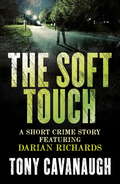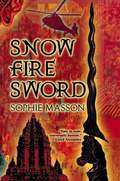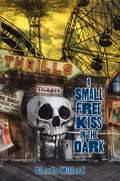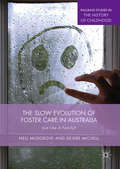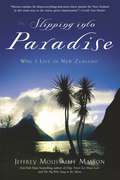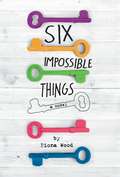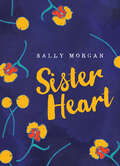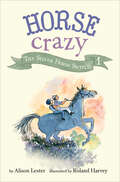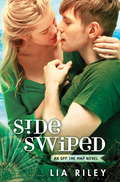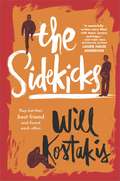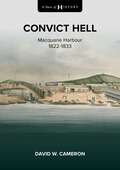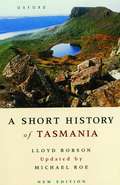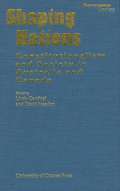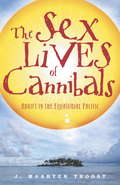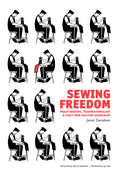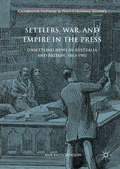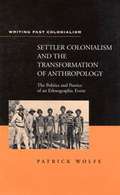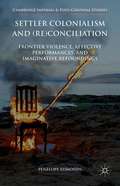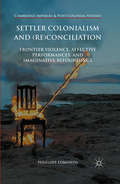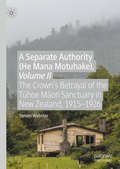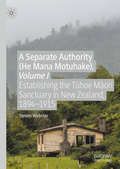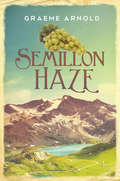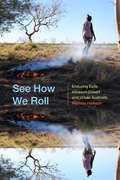- Table View
- List View
The Soft Touch
by Tony CavanaughA gripping short crime story featuring Darian Richards by Australia's bestselling debut crime writer Tony Cavanaugh. Includes previews of his first two full-length novels.[Cavanaugh's debut is] 'as good as Harlan Coben' - Weekend Australian.Darian Richards is a retired homicide investigator. He was one of the best. But chasing monsters eventually took its toll and he quit the force to sit on a jetty on the Noosa River. Or so he planned.After years of service, witnessing the best and the worst of policing, Darian has made up his own mind about justice. Whenever a horrific crime is committed debate rages about the nature of punishment. As far as the law is concerned justice doesn't condone revenge, but tell that to the family of a murder victim or to the woman you can't protect. Darian Richards knows that in the real world, when your hands are tied, sometimes revenge is the only justice.The Soft Touch takes you deep into Darian's past, to the life lessons that made him who he is. He is a man you want looking out for you not looking for you.The Darian Richards SeriesPromiseDead Girl SingThe Soft Touch (Short Story)The Train RiderKingdom of the Strong
Snow, Fire, Sword
by Sophie MassonOn the island of Jayangan, old beliefs and magic exist side by side with new pop songs and motorcycles. . . . Adi is a fisherman's son, proud to be studying with the greatest of traditional sword makers. Dewi is the daughter of a healer, curious about the world beyond her quiet village. Neither Adi nor Dewi is prepared for the sudden violence that transforms their lives. Both are propelled into an epic battle in which even the mystical spirits of Jayangan are threatened and helpless. Charged with a desperate quest to find the mysterious Snow, Fire, and Sword, Adi and Dewi know only that if they fail, their beloved homeland will fall to an evil shrouded in impenetrable darkness. Can two children of the modern world succeed where the most powerful and ancient spirits cannot? Set against the backdrop of a mythic Indonesia, Sophie Masson's gripping fantasy will leave readers breathless.
A Small Free Kiss in the Dark
by Glenda MillardTwo young boys, an old tramp, a beautiful teenage dancer, and the girl's baby--ragtag survivors of a sudden war--form a fragile family, hiding out in the ruins of an amusement park. This complex and haunting exploration of life on the edge and what it takes to triumph over adversity is a story about the indomitable nature of hope.
The Slow Evolution of Foster Care in Australia: Just Like A Family? (Palgrave Studies in the History of Childhood)
by Nell Musgrove Deidre MichellThis book draws on archival, oral history and public policy sources to tell a history of foster care in Australia from the nineteenth century to the present day. It is, primarily, a social history which places the voices of people directly touched by foster care at the centre of the story, but also within the wider social and political debates which have shaped foster care across more than a century. The book confronts foster care’s difficult past—death and abuse of foster children, family separation, and a general public apathy towards these issues—but it also acknowledges the resilience of people who have survived a childhood in foster care, and the challenges faced by those who have worked hard to provide good foster homes and to make child welfare systems better. These are themes which the book examines from an Australian perspective, but which often resonate with foster care globally.
Slipping into Paradise: Why I Live in New Zealand
by Jeffrey Moussaieff MassonIn the tradition of Under the Tuscan Sun and A Year in Provence, here is Jeffrey Moussaieff Masson's ode to his personal paradise-his adopted home, New Zealand. After living in California, why did Masson settle- out of all the places on earth-in such a faraway land? It turns out that while visiting a beautiful sandy beach just fifteen minutes from bustling Auckland, Masson and his family were utterly seduced by the exotic locale. There was little deliberation. This place, surrounded by lush forest on a bay dotted with volcanic islands, would be their new home.Masson takes readers on a remarkable journey to another world, as he and his family "slip into" the paradise that is New Zealand. For anyone who has ever dreamed of finding utopia, Masson reveals a country where neighbors talk to one another and provide a sense of real community-rarely, outside of the big cities, locking their doors-and where politics are as mellow as the weather. New Zealand is also a land of spectacular scenery, made even more famous for being the shooting location for the Lord of the Rings films. The flora is plentiful. Mangroves, banana plants, papaya trees, and more than ten thousand species of ferns grow wild and freely. The fauna is benign. There are no snakes, tarantulas, or scorpions. Children can walk to school barefoot without a care- there is nothing to sting them, bite them, or give them a rash. In the blue waters near the lush coastline, dolphins and orcas abound. While describing his love affair with the country and his affinity for its citizens, Masson reflects on the meaning of home, the importance of acting on intuition, and what happens when we lose our connection to the place we live in. Responding to an impulse, Masson reveals, he realized a dream.Featuring a its glossary of phrases used by New Zealanders and important Maori words, as well as the author's recommended travel itinerary, Slipping into Paradise is ideal for anyone planning a visit to this exquisite land. Full of photographs, delightful anecdotes, and little-known facts (jogging, for example, was invented in New Zealand), Slipping into Paradise is also a book for those who fantasize about dramatically changing their lives-and who imagine something better for themselves. Jeffrey Masson's message: New Zealand awaits.From the Hardcover edition.
Six Impossible Things
by Fiona Wood1. Kiss Estelle.2. Get a job.3. Cheer my mother up.4. Try not to be a complete nerd/loser.5. Talk to my father when he calls.6. Figure out how to be good.Nerd-boy Dan Cereill is not quite coping with a whole heap of problems, including a reversal of family fortune, moving, new-school hell, a mother with a failing wedding cake business, a just-out gay dad, and a massive crush on Estelle, the girl next door. His life is a mess, but for now he's narrowed it down to just six impossible things.... In this charming story of one guy's efforts to get it together when his life is falling apart, award-winning author Fiona Wood introduces an irresistible voice and a delightfully awkward character who is impossible to forget.
Sister Heart
by Sally MorganA young Aboriginal girl is taken from the north of Australia and sent to an institution in the distant south. There, she slowly makes a new life for herself and, in the face of tragedy, finds strength in new friendships. Poignantly told from the child's perspective, Sister Heart affirms the power of family and kinship. This compelling novel about the stolen generations helps teachers sensitively introduce into the classroom one of world's most confronting histories.
The Silver Horse Switch (Horse Crazy #1)
by Alison Lester&“Harvey&’s ink and watercolor pictures cheerily depict life in the bush and capture the personalities of the heroines and their equine friends.&” —Publishers Weekly Bonnie and Sam are best friends who love horses. They befriend the ponies and horses in their Australian town except for one, Drover, who used to be wild. All she dreams about is getting back to the mountains to be free. One evening, when a wild, mountain horse who could be Drover&’s twin comes face to face with the cantankerous, corralled Drover, both horses get their chance at a new life. Illustrated with lively watercolor throughout, this endearing tale is a sure hit. &“Lighthearted easy readers with Harvey&’s appealing watercolor illustrations, these books have instant charm . . . The horses are as vivid and complex as the deftly drawn human characters.&” —Kirkus Reviews
Sideswiped: Off the Map 2 (Off the Map #2)
by Lia RileyIt was only meant to last the summer . . .Talia Stolfi has seen more than her share of loss in her twenty-one years. But then fate brought her Bran Lockhart, and her dark world was suddenly and spectacularly illuminated. So if being with Bran means leaving her colourless NorCal life for rugged and wild Australia, then that's what she'll do. But as much as Talia longs to give herself over completely to a new beginning, the fears of her past are still lurking in the shadows.Bran Lockhart knows that living without the beautiful girl who stole his heart will be torment, so he'll take whatever time with her he can. But even though she has packed up her life in California and is back in his arms for the time being, she can't stay forever. And the remaining time they have together is ticking by way too fast. Though fate seems determined to tear them apart, they won't give up without a fight-because while time may have limits, their love is infinite . . .Book #2 in the OFF THE MAP seriesPraise for Lia Riley:'Upside Down gave me all the feels. Romantic and poignant, the journey of love and acceptance lingers long after the book is closed' Jennifer L. Armentrout/J. Lynn, #1 New York Times bestselling author'Must read romance . . . refreshing and heartfelt New Adult contemporary romance' USA Today'Addictively readable' Booklist (starred review)'Riley writes a captivating story from beginning to breathtaking end' Publishers Weekly starred review'Fresh, sexy, and romantic. I cannot wait for the next book' Kristen Callihan, bestselling author'Fast paced, electric and sweetly emotional!' Tracy Wolff, New York Times bestselling author'Where to even start with this book? Beautifully written, Australia, hot surfer Bran, unique heroine Talia. Yep, it's all just a whole lot of awesome. Loved it!' Cindi Madsen, USA Today bestselling author'A rich setting and utterly romantic . . . I absolutely loved it!' Melissa West, author of Pieces of Olivia'Upside Down is a brilliantly-written New Adult romance that transported me to another country. With vivid imagery and rich characterisations, I was completely smitten with the love story of Bran and Talia. I cannot wait for the rest of their story!' Megan Erickson, author of Make it Count
The Sidekicks
by Will KostakisRyan, Harley and Miles are very different people-the swimmer, the rebel and the nerd. All they've ever had in common is Isaac, their shared best friend. When Isaac dies unexpectedly, the three boys must come to terms with their grief and the impact Isaac had on each of their lives. In his absence, Ryan, Harley and Miles discover things about one another they never saw before, and realize there may be more tying them together than just Isaac. In this intricately woven story told in three parts, award-winning Australian author Will Kostakis makes his American debut with a heartwarming, masterfully written novel about grief, self-discovery and the connections that tie us all together.
A Shot of History: Macquarie Harbour 1822-1833 (A Shot of History #1)
by David W. CameronThe year 2022 marks the 200th anniversary of the establishment of the penal settlement at Macquarie Harbour. This convict penal settlement located on the isolated primeval rugged west coast of Van Diemen&’s Land (Tasmania) quickly gained a reputation as an &‘Earthy Hell&’. Colonial historian John West succinctly recorded in 1852: &‘The name Macquarie Harbour is associated exclusively with remembrance of inexpressible depravity, degradation, and woe. Sacred to the genius of torture, Nature concurred with the objects of its separation from the rest of the world, to exhibit some notion of a perfect misery. There, man lost the aspect and the heart of man …. This region is lashed with tempests: the sky is cloudy, and the rain falls more frequently than elsewhere. In its chill and humid climate, animal life is preserved with difficulty; half the goats died in one season, and sheep perished; vegetation, except in its coarsest and most massive forms is situated and precarious …. The passage to this dreary dwelling place was tedious and often dangerous. The prisoners, confined in a narrow space, were tossed for weeks on an agitated sea. As they approached, they beheld a narrow opening chocked with a bar of sand and crossed with peril. This they called Hell&’s Gate – not less appropriate to the place than to the character and torment of the inhabitants: beyond they saw impenetrable forests, skirted with an impervious thicket; and beyond still enormous mountains covered with snow, which rose to the clouds like walls of adamant: every object wore the air of rigour, ferocity, and sadness&’. This was just the beginning for those sentenced to Macquarie Harbour the barbaric treatment from officials and fellow convicts alike, resulted in Macquarie Harbour representing a true convict hell hole, not only resulting in murder, but in cannibalism by several men in their attempts to escape.
A Short History of Tasmania
by Lloyd L. Robson Michael RoeThis is a concise and lively history of Tasmania from its earliest times to the late 1990s. It is also a case study of British colonization in Australia, tracing the rocky path from invasion to modernity, from the rigors of Van Dieman's Land to the Franklin Dam controversy. For this new edition, Michael Roe has added two new chapters which provide a history up to 1996.
Shaping Nations: Constitutionalism and Society in Australia and Canada
by Linda Cardinal David HeadonShaping Nations brings together the work of Australian and Canadian scholars around five core themes: constitutionalism, colonialism, republicanism, national identity, and governance.
The Sex Lives of Cannibals: Adrift in the Equatorial Pacific
by J. Maarten TroostFantasized about quitting the 9-5? Walking away from credit card debt and student loans? Think living in the South Pacific for two years sounds like a perfect solution and perhaps even a winning idea for your first novel? Maarten Troost does just that, setting up as a devil-may-care islander while his girlfriend, Sylvia, gets to work on saving the planet, or at least a little part of it on an end-of-the-world atoll, Tarawa. Life on Tarawa resembles not so much paradise as a theatre of the absurd where planes fly with the aid of masking tape, Coconut Stalinism prevails as national government and Sylvia is co-opted by the CIA to spy on the Chinese. But abandoning continental hang-ups like barbequeing the local dogs and watching on as international industrial fishing trawlers plunder the world's richest tuna supply aren't so easy.
Sewing Freedom
by Barry Pateman Jared DavidsonSewing Freedom is the first in-depth study of anarchism in New Zealand during the turbulent years of the early 20th century-a time of wildcat strikes, industrial warfare, and a radical working class counter-culture. Interweaving biography, cultural history, and an array of archival sources, this engaging account unravels the anarchist-cum-bomber stereotype by piecing together the life of Philip Josephs-a Latvian-born Jewish tailor, antimilitarist, and founder of the Wellington Freedom Group. Anarchists like Josephs not only existed in the 'Workingman's Paradise' that was New Zealand, but were a lively part of its labour movement and the class struggle that swept through the country, imparting uncredited influence and ideas. Sewing Freedom places this neglected movement within the global anarchist upsurge, and unearths the colourful activities of New Zealand's most radical advocates for social and economic change. Includes illustrations by Icky from Justseeds and a foreword by Barry Pateman (Kate Sharpley Library Archivist and Associate Editor at the Emma Goldman Papers)."Davidson has produced much more than a soundly researched and very engaging biography... this is an excellent, wide-ranging contribution to our knowledge of the international (and indeed transnational) anarchist movement, and sweeps us along in a fascinating story that takes us from the pogroms in Russian Latvia, to the working-class slums of Victorian Glasgow, to the early struggles of the nascent labour movement in New Zealand."-Dr David Berry, author of A History of the French Anarchist Movement"Many millions of words have been written on New Zealand history. The labour movement does not feature prominently in this vast corpus; in fact, quite the contrary. And within this relatively sparse coverage, anarchism is almost invariably assigned at best a passing mention. We must be grateful for Davidson's determination to restore an anarchist voice to the history of the outermost reach of the British Empire."-Dr Richard Hill, Professor of New Zealand Studies & author of Iron Hand in the Velvet Glove"A ground breaking tale of a rebel life, skillfully unearthed by Jared Davidson. A must read."-Lucien van der Walt, co-author of Black Flame
Settlers, War, and Empire in the Press
by Sam HutchinsonThis book explores how public commentary framed Australian involvement in the Waikato War (1863-64), the Sudan crisis (1885), and the South African War (1899-1902), a succession of conflicts that reverberated around the British Empire and which the newspaper press reported at length. It reconstructs the ways these conflicts were understood and reflected in the colonial and British press, and how commentators responded to the shifting circumstances that shaped the mood of their coverage. Studying each conflict in turn, the book explores the expressions of feeling that arose within and between the Australian colonies and Britain. It argues that settler and imperial narratives required constant defending and maintaining. This process led to tensions between Britain and the colonies, and also to vivid displays of mutual affection. The book examines how war narratives merged with ideas of territorial ownership and productivity, racial anxieties, self-governance, and foundational violence. In doing so it draws out the rationales and emotions that both fortified and unsettled settler societies.
Settler Colonialism And The Transformation Of Anthropology: The Politics And Poetics Of An Ethnographic Event (Writing Past Colonialism)
by Patrick WolfeThis work analyzes the politics of anthropological knowledge from critical perspective that alters existing understandings of colonialism. At the same time, it produces insights into the history of anthropology. Organized around an historical reconstruction of the great anthropological controversy over doctrines of virgin birth, the book argues that the allegation a great deal about European colonial discourse and little if anything about indigenous beliefs. By means of an Australian example, the book shows not only that the alleged ignorance was an artifact of the anthropological theory that produced it, but also that the anthropology was an artifact of the anthropological theory that produced it, but also that the anthropology concerned has been closely tied into both the historical dispossession and the continuing oppression of native peoples. The author explores the links between metropolitan anthropological theory and local colonial politics from the 19th century up to the present, settler colonialism, and the ideological and sexual regimes that characterize it.
Settler Colonialism and: Frontier Violence, Affective Performances, and Imaginative Refoundings (Cambridge Imperial and Post-Colonial Studies)
by Penelope EdmondsThis book examines the performative life reconciliation and its discontents in settler societies. It explores the refoundings of the settler state and reimaginings of its alternatives, as well as the way the past is mobilized and reworked in the name of social transformation within a new global paradigm of reconciliation and the 'age of apology'.
Settler Colonialism and: Frontier Violence, Affective Performances, and Imaginative Refoundings (Cambridge Imperial and Post-Colonial Studies Series)
by Penelope EdmondsThis book examines the performative life reconciliation and its discontents in settler societies. It explores the refoundings of the settler state and reimaginings of its alternatives, as well as the way the past is mobilized and reworked in the name of social transformation within a new global paradigm of reconciliation and the 'age of apology'.
A Separate Authority (He Mana Motuhake), Volume II: The Crown’s Betrayal of the Tūhoe Māori Sanctuary in New Zealand, 1915–1926
by Steven WebsterFollowing on from Volume I on the formation of the Urewera District Native Reserve, this monograph examines the period from 1908 to 1926, during which time the Crown subverted Tūhoe control of the UDNR, established a mere decade earlier. While Volume I described how the Tūhoe were able to deploy kin-based power to manipulate Crown power as well as confront one another, this volume describes ways in which the same ancestral descent groups closed ranks to survive nearly two decades of predatory Crown policies determined to dismantle their sanctuary. A relentless Crown campaign to purchase individual Tūhoe land shares ultimately resulted in a misleading Crown scheme to consolidate and relocate Tūhoe land shares, thereby freeing up land for the settlement of non- Tūhoe farmers. By the 1950s, over 200 small Tūhoe blocks were scattered throughout one of the largest National Parks in New Zealand. Although greatly weakened by these policies in terms of kinship solidarity as well as land and other resources, Tūhoe resistance continued until the return of the entire park in 2014—with unreserved apologies and promises of future support. In both volumes of A Separate Authority (He Mana Motuhake), Webster takes the stance of an ethnohistorian: he not only examines the various ways control over the Urewera District Native Reserve (UDNR) was negotiated, subverted or betrayed, and renegotiated during this time period, but also focuses on the role of Māori hapū, ancestral descent groups and their leaders, including the political economic influence of extensive marriage alliances between them. The ethnohistorical approach developed here may be useful to other studies of governance, indigenous resistance, and reform, whether in New Zealand or elsewhere.
A Separate Authority (He Mana Motuhake), Volume I: Establishing the Tūhoe Māori Sanctuary in New Zealand, 1894–1915
by Steven WebsterThis book is an ethnohistorical reconstruction of the establishment in New Zealand of a rare case of Maori home-rule over their traditional domain, backed by a special statute and investigated by a Crown commission the majority of whom were Tūhoe leaders. However, by 1913 Tūhoe home-rule over this vast domain was being subverted by the Crown, which by 1926 had obtained three-quarters of their reserve. By the 1950s this vast area had become the rugged Urewera National Park, isolating over 200 small blocks retained by stubborn Tūhoe "non-sellers". After a century of resistance, in 2014 the Tūhoe finally regained statutory control over their ancestral domain and a detailed apology from the Crown.
Semillon Haze
by Graeme ArnoldAustinn Baeder arrived in the Port of Geelong in 1845 with his two adult sons to start a new life. The Swiss winemaker planned to open a new vineyard and winery on the banks of the Barwon River. The retired soldier came looking for new opportunities, but to also leave a troubled past behind. Mitchell Baeder, a modern-day descendant of Austinn continues the winemaking tradition on the original property Austinn and his sons established, Cressier. Mitchell is a bit old-fashioned and slow to embrace modern techniques. His son, Adam is a wayward adolescent, and causes Mitchell and his wife Fiona much grief. Adam's on and off relationship with Jenny, a girl from the adjacent winery, has the potential to bring the family together. A series of unfortunate events unwittingly brings the modern day Baeder family far closer to their ancestors than they could ever imagine. It could even expose a dreadful family secret that lay dormant for over 100 years: the true reason behind Austinn's emigration.
See How We Roll: Enduring Exile between Desert and Urban Australia (Global Insecurities)
by Melinda HinksonIn See How We Roll Melinda Hinkson follows the experiences of Nungarrayi, a Warlpiri woman from the Central Australian desert, as she struggles to establish a new life for herself in the city of Adelaide. Banished from her hometown, Nungarrayi energetically navigates promises of transformation as well as sedimented racialized expectations on the urban streets. Drawing on a decades-long friendship, Hinkson explores these circumstances through Nungarrayi's relationships: those between her country and kin that sustain and confound life beyond the desert, those that regulate her marginalized citizenship, and the new friendships called out by displacement and metropolitan life. An intimate ethnography, See How We Roll provides great insight into the enduring violence of the settler colonial state while illuminating the efforts of Indigenous people to create lives of dignity and shared purpose in the face of turbulence, grief, and tightening governmental controls.
